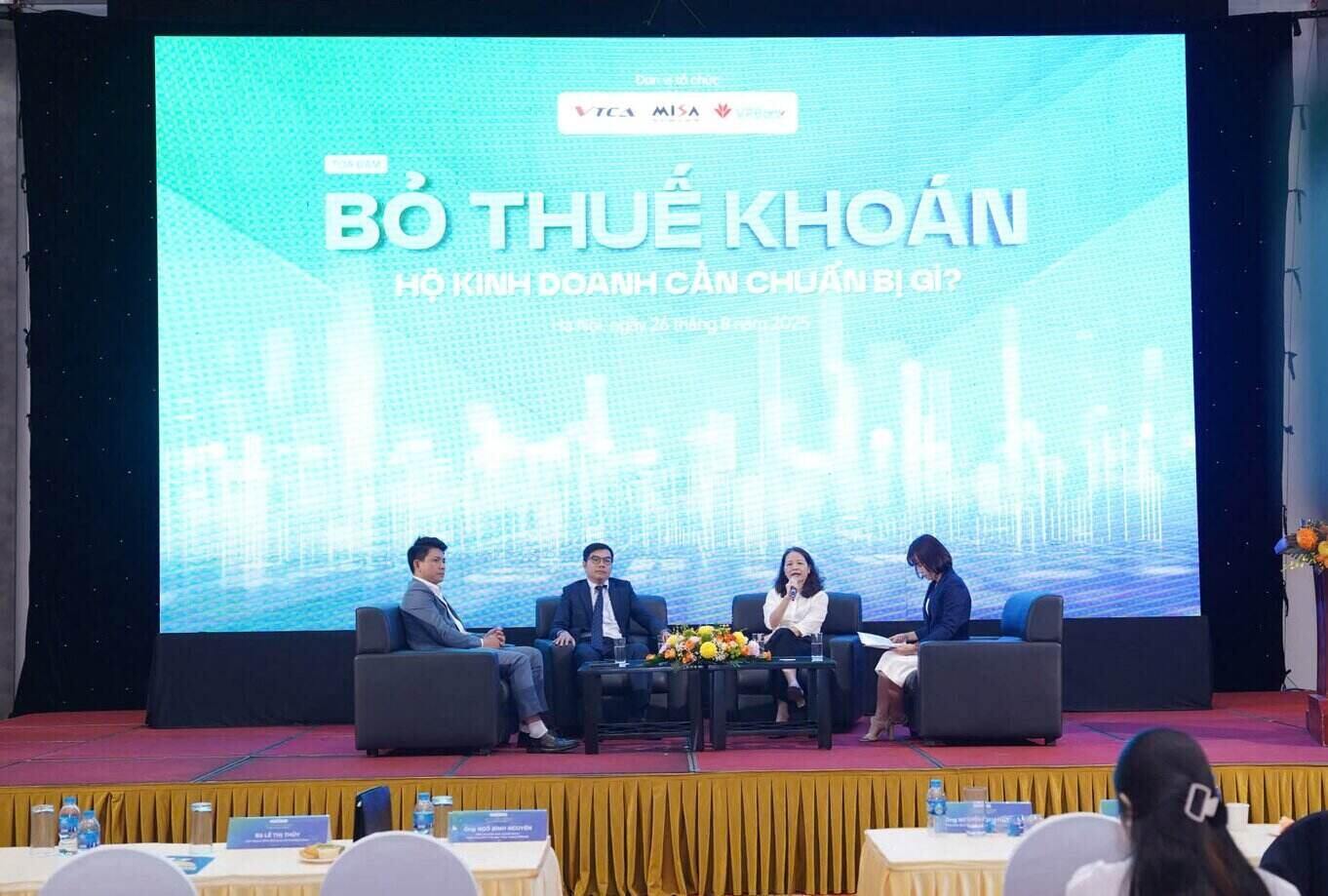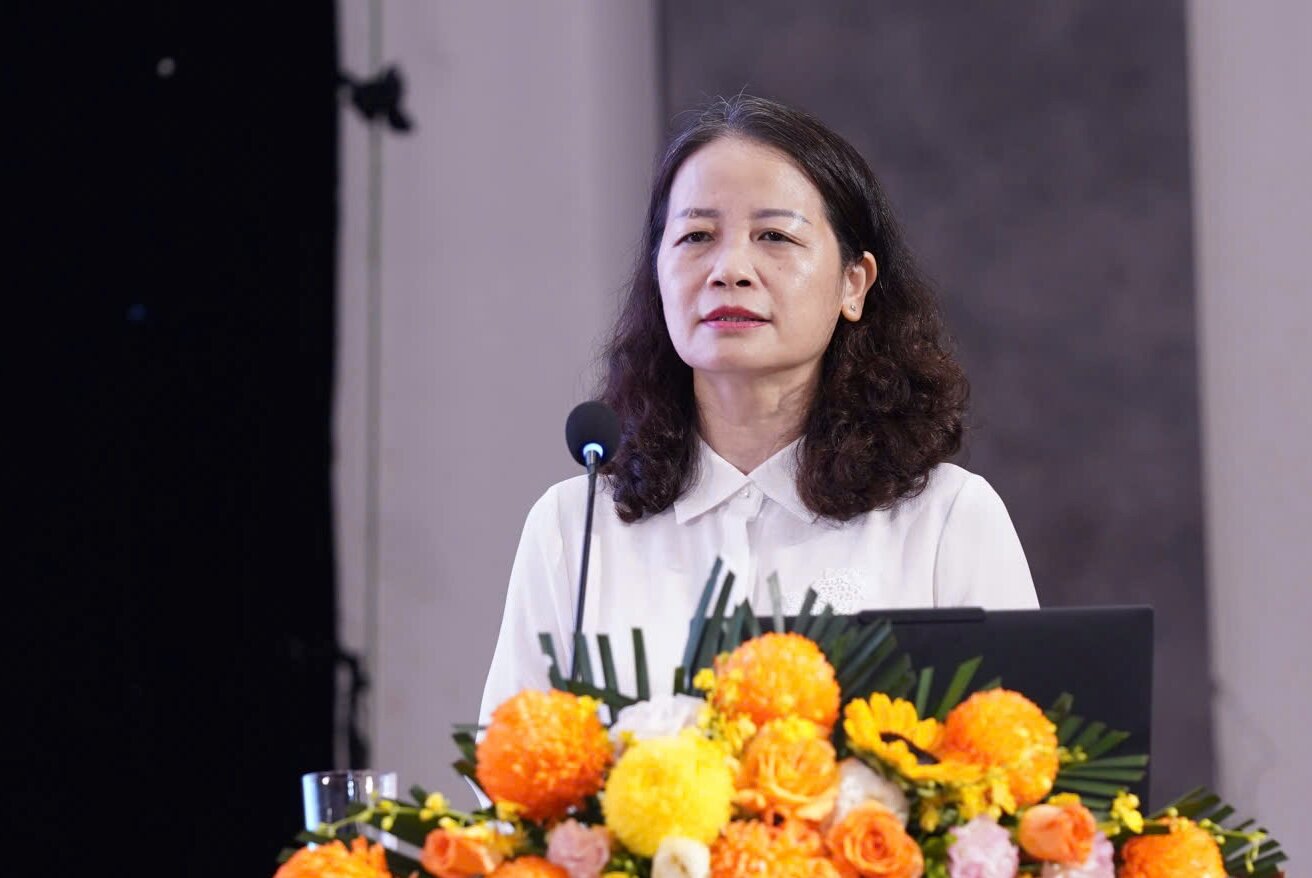New obligations and opportunities
For many years, contract tax has been a familiar method for business households. But according to the reform roadmap, this form will end at the latest in 2026. Replace it with a transparent declaration mechanism, electronic tax payment, and use of invoices connected to cash registers. This is considered an important turning point, both creating challenges and opening up new opportunities for the business community.
On August 26, 2025, the Vietnam Tax Consulting Association (VTCA), MISA Joint Stock Company and Vietnam Prosperity Joint Stock Commercial Bank (VPBank) jointly organized the Workshop "Contract tax exemption: What should business households prepare for?".
Sharing at the Workshop, Ms. Nguyen Thi Thu Ha - former Director of the Propaganda Department, General Department of Taxation (now the Tax Department), said that Resolution 68-NQ/TW clearly stipulates: abolishing contract tax, abolishing card fees and encouraging business households to switch to the enterprise model.
An important new point is the requirement for households with revenue from 1 billion VND/year to be required to use electronic invoices to connect to computers for money from 1.6.2025. This requires businesses to have a firm grasp of legal obligations, determine the part that can be done by themselves and the part that needs to be hired for services such as accounting, electronic invoices or tax agents. If prepared promptly, households will benefit: financial transparency, easy access to bank capital, increased cooperation opportunities and market expansion.
To meet the conversion needs, MISA has introduced a set of sales management solutions - invoices - tax declaration specifically for business households. For small businesses, households can use the MISA eShop application right on their phones to manage sales, issue invoices, and send tax declarations. The application also integrates AI to support voice-based orders. For large-scale households, POS software combined with machines helps issue invoices immediately, synchronize accounting data and pay taxes electronically. In particular, the solution connects with nearly 24,000 accounting and tax experts on the MISA ASP platform, supporting households to improve their professionalism in financial management.

In addition to technology, capital and cash flow are also issues that business households are concerned about. VPBank has launched a V20K loan package with preferential interest rates from 3.99%/year, limited to VND20,000 billion. The bank also issued VPBank CommCredit cards with a refund of up to 12% and a Super Sinh toolkit with an interest rate of 3.5%/year for idle cash flow. According to VPBank representative, the bank is committed to accompanying not only in loans but also in governance, insurance and reinvestment, to help households develop stably and sustainably.
Electronic invoices and tax management for traditional and online business households
At the seminar within the framework of the Workshop, tax experts, MISA representatives and VPBank together resolved practical problems: from issuing invoices, managing books to handling cash flow. There is consensus that eliminating contract tax is an inevitable trend. The challenge is big, but if prepared early, businesses will turn pressure into opportunities for transparency, cost optimization, increased reputation and expanded cooperation.
According to Ms. Nguyen Thi Thu Ha - Former Director of the Propaganda Department, General Department of Taxation, the removal of contract tax causes business households to change their management habits, especially with invoices and documents.

For traditional businesses (such as food stores, garment workshops, seafood businesses), over the years, there has been little attention paid to input-output invoices. However, from now until January 1, 2026, all goods sold must issue electronic invoices from cash registers; selling to businesses or other households must include full buyer information, otherwise the invoices will not be valid. This is the stage for households to get used to: selling goods must issue invoices, buying goods must get invoices, and gradually handling goods with unknown documents. By January 1, 2026, all inventories must have valid invoices and documents.
For households and individuals doing business on e-commerce platforms, Decree 117/2025 clearly stipulates:
The payment platform will deduct and pay VAT and personal income tax on behalf of the customer immediately upon the transaction arising, regardless of value.
The platform can authorize the issuance of electronic invoices on behalf of sellers, data is sent to tax authorities, buyers and business households, to avoid matchment of invoices.
Individuals do not have to re-declare the tax paid in return, only declare additional if there is additional special consumption tax, environmental tax or resource tax.
If the revenue has not reached the taxable threshold, individuals can still request a tax refund based on the deduction document.
Thus, whether doing business traditionally or online, households need to change the management method to make invoices and documents transparent, avoid legal risks and ensure tax benefits.











